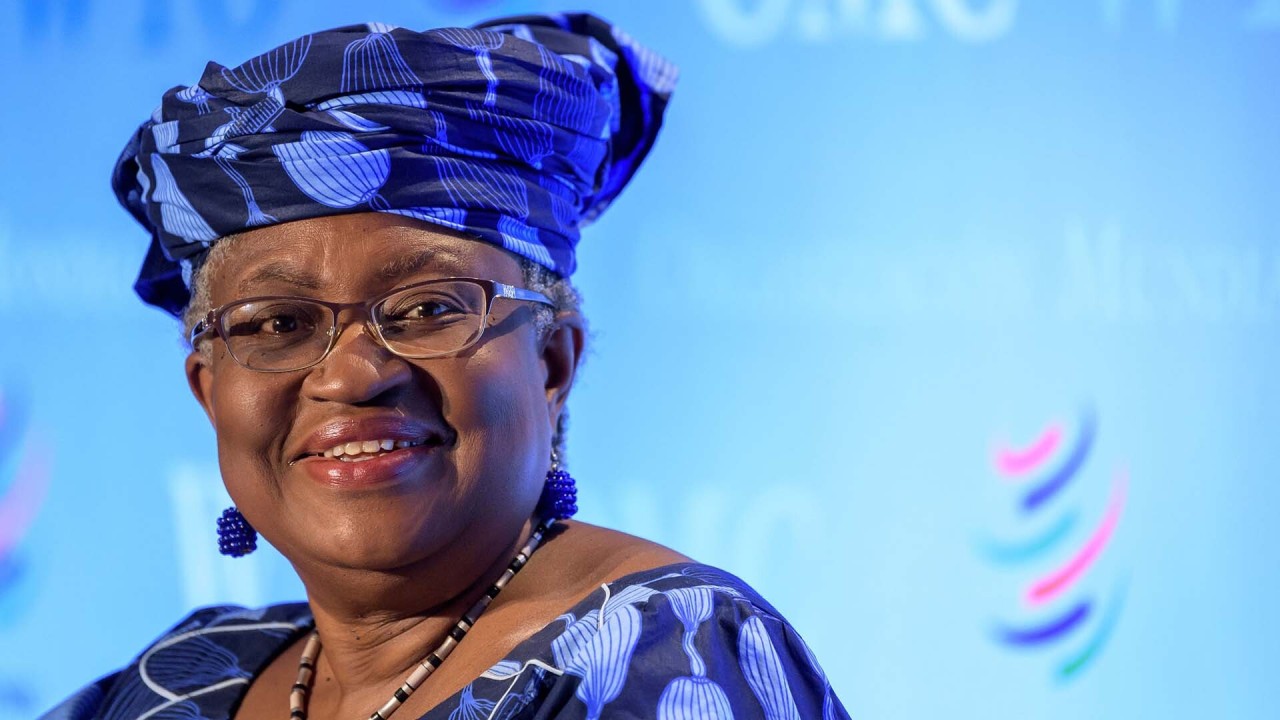
WTO: Ngozi Okonjo-Iweala faces tall order to reform global trade body, Chinese experts say
- Ngozi Okonjo-Iweala faces a steep challenge to reform the World Trade Organization, including its dysfunctional appeals body, Chinese experts say
- Restoring its Appellate Body will be a priority for the Nigerian as she starts her term as the first woman and first African to lead the global trade body
Okonjo-Iweala – the first woman and first African leader of the organisation – will take control of the WTO at one of the most difficult periods in its history, and faces a herculean task to restore the battered institution.
Speaking at a virtual press conference after her confirmation early this week, Okonjo-Iweala said reforming the dysfunctional appeals system was a priority.
The WTO is a member-driven organisation, which means all its major decisions are made by a consensus of 164 governments, not the director general
Among other issues she will have to address are long-standing complaints from the US and Europe about subsidies enjoyed by Chinese state firms favoured by the government
John Gong, a professor of economics at the University of International Business and Economics in Beijing, said the Nigerian would struggle to change China’s industrial policies before implementing other reforms at the WTO.
“The WTO is a member-driven organisation, which means all its major decisions are made by a consensus of 164 governments, not the director general,” Gong said.
“The existing WTO agreement on procurement and state subsidy is quite loose … and is not a rigorously implemented agreement either.”
Gong said the other way to settle disputes on subsidies was through the now-dysfunctional Appellate Body, which would not resume operating any time soon.

02:03
Ngozi Okonjo-Iweala becomes first African, first woman director general of WTO
“Reducing subsidies can only happen when China is willing to do so, but that’s more between China and the US, not within the overall WTO,” he said.
Tackling trade distortions from subsidies, which are widespread in China, was essential for the WTO’s future, said Christine McDaniel, a senior research fellow at the Mercatus Centre at George Mason University.
“Most governments have been propping up more firms than they usually would thanks to Covid,” she said. “But once the pandemic subsides, WTO members should come to the table with an open mind and be willing to write a new subsidies chapter; we may not be able to save the WTO without it.”
Over the past month, both President Xi Jinping and the Biden administration have said they are ready to engage in reform of the WTO.
Last month, the European Commission’s director general for trade, Sabine Weyand, said the EU was looking to work with the US, Japan and other like-minded countries to agree on an update of the WTO rule book.
“We had made indeed good progress on the issue of industrial subsidies in the beginning of 2020, but what prevented further progress was that we did not agree in the trilateral on what to do with the outcome of our work,” she told the Trade Talks podcast.
“In the end, it boiled down to the question, do we believe that China can be disciplined through enforceable rules in the WTO or not?
Even if she takes sides and gets other members to reach a consensus to go against China, China can reject and declare that she is unfit for such a role
“China will react when it is confronted with the unified position of a number of like-minded countries that put pressure on it to limit the subsidies that lead also to overcapacity.”
“Even if she takes sides and gets other members to reach a consensus to go against China, China can reject and declare that she is unfit for such a role,” Shi said.
But Beijing would not totally reject requested changes to its state subsidy programme, only because the central government now had fewer resources to support state-owned enterprises, he said.
“The Chinese government has already stopped subsidising some companies that are not doing well,” he said. “The Europeans will be more easily satisfied with some compromise by China, but so far I don’t see the Americans letting China off the hook.”

